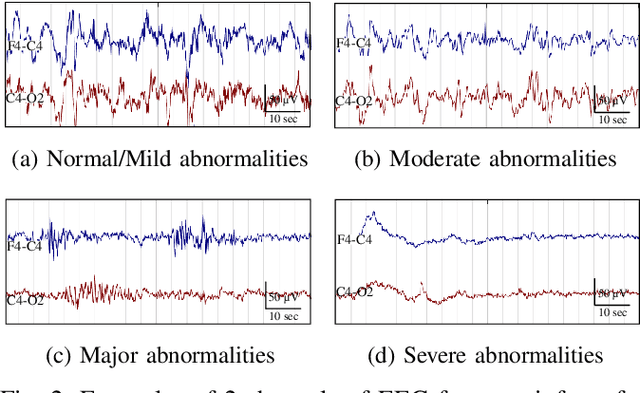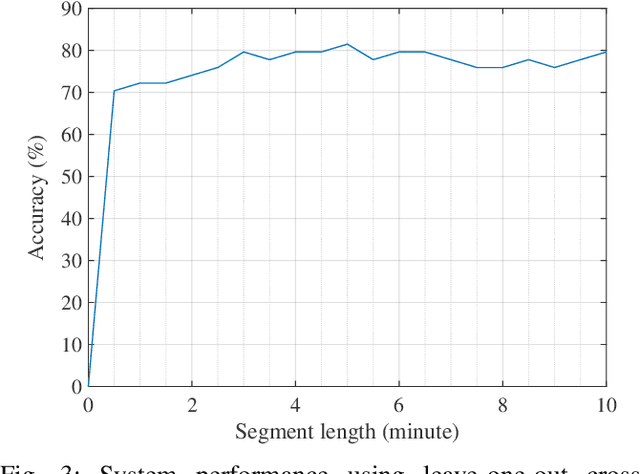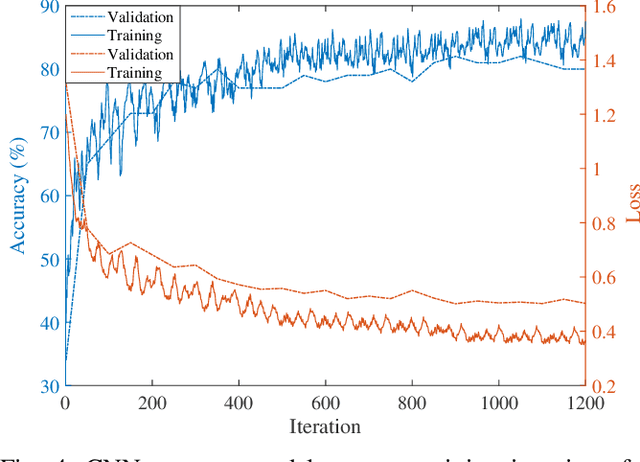Grading the severity of hypoxic-ischemic encephalopathy in newborn EEG using a convolutional neural network
Paper and Code
May 12, 2020



Electroencephalography (EEG) is a valuable clinical tool for grading injury caused by lack of blood and oxygen to the brain during birth. This study presents a novel end-to-end architecture, using a deep convolutional neural network, that learns hierarchical representations within raw EEG data. The system classifies 4 grades of hypoxic-ischemic encephalopathy and is evaluated on a multi-channel EEG dataset of 63 hours from 54 newborns. The proposed method achieves a testing accuracy of 79.6% with one-step voting and 81.5% with two-step voting. These results show how a feature-free approach can be used to classify different grades of injury in newborn EEG with comparable accuracy to existing feature-based systems. Automated grading of newborn background EEG could help with the early identification of those infants in need of interventional therapies such as hypothermia.
 Add to Chrome
Add to Chrome Add to Firefox
Add to Firefox Add to Edge
Add to Edge